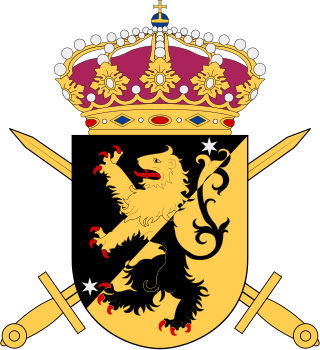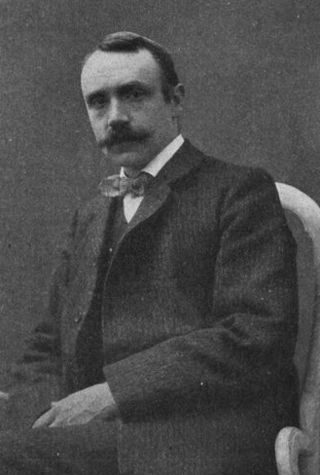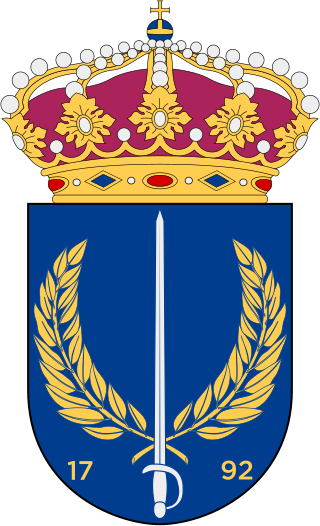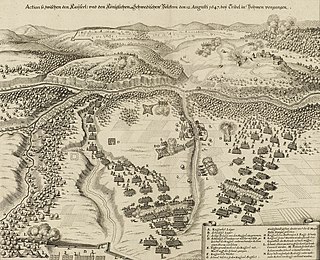
Count Carl Johan Gustaf Snoilsky was a Swedish diplomat and lyricist of probable Slovene descent. He was the most prominent early realist and was a member of the Swedish Academy. His life and work was a major influence on the playwright Henrik Ibsen, in particular Ibsen's play Rosmersholm.

Stockholms lyceum was a private secondary school in Stockholm, Sweden, functioning from 1839 until 1875.

Helena Nyblom was a Danish-Swedish children's story author. She is perhaps most remembered for The Swan Suit. She died in Stockholm.

Rosmersholm is a play written by Norwegian playwright Henrik Ibsen in Danish—the common written language of Denmark and Norway at the time—and originally published in 1886 in Copenhagen by the Danish publisher Gyldendal. Rosmersholm has been described as one of Ibsen's darkest, most complex, subtle, beautiful, mystical, multilayered and ambiguous plays. The play explores the tension between old and new, and between liberation and servitude. Rosmersholm and The Wild Duck are "often to be observed in the critics' estimates vying with each other as rivals for the top place among Ibsen's works."

The Skaraborg Regiment, designation I 9, was a Swedish Army infantry regiment that traced its origins back to the 16th century. It was converted to an armoured regiment in 1942. The regiment's soldiers were recruited from Skaraborg County, and it was later garrisoned there.

Ruben Mattias Liljefors was a Swedish composer and conductor, brother of the artist Bruno Liljefors.

Military Academy Karlberg is a Swedish military academy, since its inauguration in 1792 in operation in the Karlberg Palace in Solna, just north of central Stockholm. It is thus the oldest military academy in the world to remain in its original location.

Björkudden is a manor house in Östersundom, Helsinki, Finland, designed by the architect Wilhelm Linsén and built in the mid-19th century. Koivuniemi was the home of the Finnish writer and historian Zacharias Topelius. After his death it returned to the previous owners and is to the present owned by the Lilius family.

The chancellor of justice is a Swedish government agency charged with representing the Government of Sweden in various legal matters as the government's ombudsman. The office was originally created through a decree issued by King Charles XII in 1713.
Events from the year 1903 in Sweden

Count Gustaf Lagerbjelke was a Swedish politician, the last Lord Marshal and the first Speaker of Första kammaren of the Riksdag.

Events from the year 1841 in Sweden

Events from the year 1753 in Sweden

Sofia Drake of Torp and Hamra, was a Swedish landowner. She is known for her correspondence with her spouse, Lieutenant Colonel Jon Stålhammar, during his absence in the Great Northern War, and as the Frun på Salshult in the 1886 poem by Carl Snoilsky of the same name.

Karl Henry Olsson was a Swedish literary scholar. He was Professor of literary history and poetics at Stockholm University and a member of the Swedish Academy.

Sigrid Fredrika Juliana Snoilsky (1813–1856) was a Swedish painter and countess.

The Battle of Triebl or Battle of Třebel took place on 22 August 1647 during the Thirty Years' War. Imperial cavalry under Raimondo Montecuccoli and Johann von Werth launched a surprise attack on the Swedish camp of Carl Gustaf Wrangel and inflicted 380, or more than 1,300, losses on them in exchange for 200–300 casualties. Both sides claimed victory after the battle. The Imperial attack helped convince Maximilian I, Elector of Bavaria to abandon the Truce of Ulm in September and rejoin the war on the Imperial side.

The 1903 Nobel Prize in Literature was the third prestigious literary prize based upon Alfred Nobel's will, which awarded to the Norwegian poet and politician Bjørnstjerne Bjørnson (1832–1910) "as a tribute to his noble, magnificent and versatile poetry, which has always been distinguished by both the freshness of its inspiration and the rare purity of its spirit." The prize was announced in October 08, 1903 and was given in December 10, 1903 at Stockholm.
















